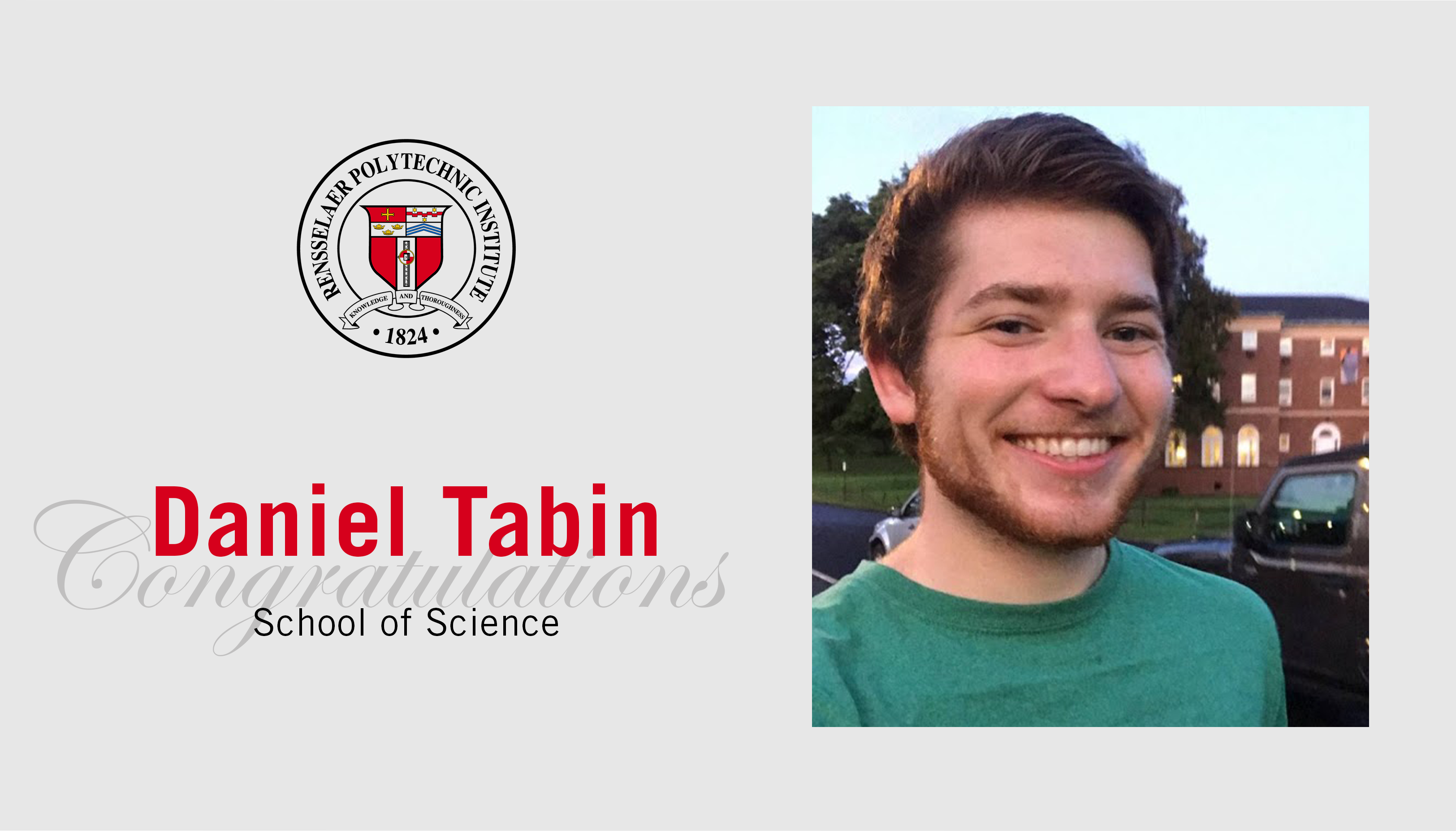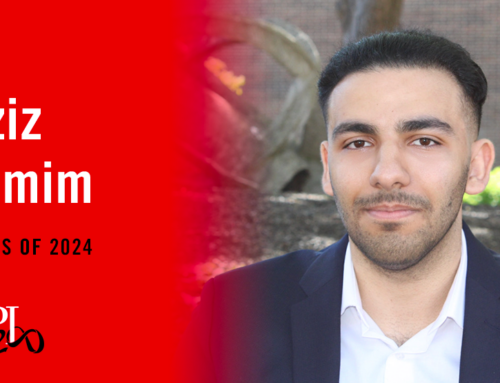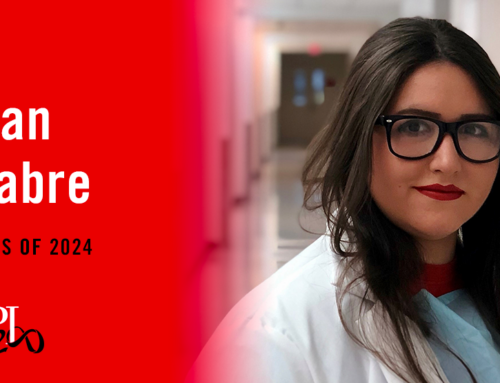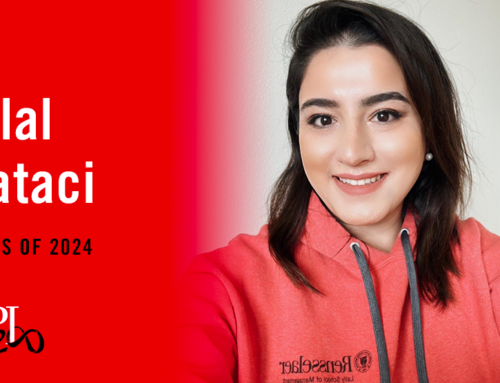For Daniel Tabin, computer science is a tool that is most fascinating and potent when applied to other fields of inquiry. Having earned a co-terminal undergraduate degree and master’s degree in computer science at Rensselaer Polytechnic Institute, Tabin is embarking on a doctoral program in human evolutionary biology, using the tools he has learned to unlock our past.
“I have a passion for history and biology, and also human history and evolution. I find it fascinating that every single human that’s ever lived has had a life as rich as you or I,” Tabin said. “You’re never going to find all their stories, because they’re lost in time, but you can find some of them from where they are in the world, their bones, their grave goods, and also their DNA.”
Tabin choose Rensselaer based on a positive consensus among the students he spoke with. He visited a short list of schools to which he had been accepted, asking students to name their favorite and least favorite aspect of the school.
“At RPI, everyone said the same thing, which is that they loved the people, they loved the community: the professors, everyone who was here,” Tabin said. “There was a consensus at RPI for what was good, but there wasn’t a consensus for what was bad. And that made me think it was a positive school.”
He enrolled in computer science based on its heavy dependence on logic and math, areas that he loves and in which he excels, and because he was able to apply many advanced placement courses to the major, which offered him a more flexible schedule for exploring other subjects while earning his degree. And Tabin took full advantage of his time, trying many student clubs and activities, and ultimately joining a fraternity and becoming active in the Rensselaer Center for Open Source.
His doctoral work will not be his first foray into human evolutionary biology. Early in his tenure at Rensselaer, Tabin interned in the lab of Alan Rogers, a professor of anthropology at the University of Utah, near his hometown of Snyderville, Utah. His work involved writing software for comparing models used to study genetic data, and during the process Tabin said he “fell in love with the topic.”
It was an ideal application of the skills he had been building in computer science and math to other topics he was passionate about.
“I love learning about machine learning and new languages and functional programming, but I find the most interesting parts of computer science are at the border, where you’re applying computer science to solve real problems,” Tabin said. “And there’s a lot of computer science in human evolutionary biology because you’re looking at DNA and comparing it, using math to determine the covariance of the different strands from different people, or algorithms to collate information so that it can be analyzed.”
As part of his master’s degree, Tabin worked with Rensselaer Professors Boleslaw Szymanski and Jianxi Gao, most recently on work modeling various aspects of political polarization. In work soon to be published, the research group, which also includes Rensselaer Ph.D. student Manqing Ma and Cornell Professor Michael Macy, created a model that simulates a network of 100 people, each with different opinions on various topics, and all connected with one another, similar to the United States Senate. They tested how polarization might alter based on varying degrees of tolerance and partisanship among the people, and, in particular, how polarization might change in the face of an exogeneous shock, like a pandemic, or the January 6 riots at the U.S. Capitol.
After Commencement, Tabin will move to Harvard University, joining the lab of David Reich, which focuses on ancient DNA, biology, and disease.




